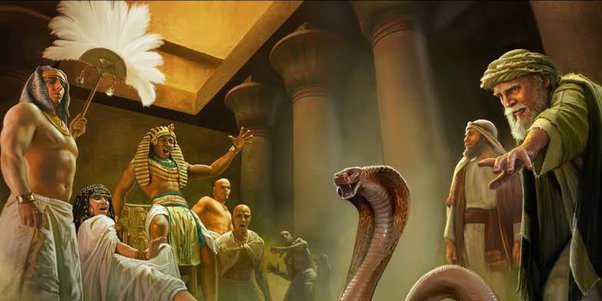Embracing the Legacy of Umar ibn al-Khattab (may Allah be pleased with him)
Explore the profound legacy of Umar ibn al-Khattab (may Allah be pleased with him), a towering figure in Islamic history known for his wisdom, justice, and unwavering devotion to Allah. Journey through his remarkable life and discover the timeless lessons he imparted.
Introduction:
Enter the realm of Umar ibn al-Khattab (may Allah be pleased with him), a man whose name echoes through the annals of Islamic history like a beacon of light in the darkness. Join us on an emotional journey as we delve into the depths of his character, exploring the virtues that endeared him to generations of believers.
The Early Years:
In the deserts of Arabia, amidst the sands of time, Umar ibn al-Khattab (may Allah be pleased with him) emerged from humble beginnings to etch his name upon the tablets of history. His childhood was a tapestry woven with threads of hardship and resilience, shaping the very fabric of his soul.
A Childhood of Struggle:
Born into the Banu Adi clan of the Quraysh tribe, Umar ibn al-Khattab (may Allah be pleased with him) experienced the harsh realities of life from a young age. His father’s death left a void in his heart, compelling him to shoulder the burdens of responsibility with stoic determination.
The Quest for Truth:
Amidst the pagan rituals and idolatrous practices of pre-Islamic Arabia, Umar ibn al-Khattab (may Allah be pleased with him) embarked on a quest for truth that would define the course of his life. His soul thirsted for knowledge and enlightenment, driving him to seek answers amidst the chaos and confusion of his surroundings.
A Heart Transformed:
In the throes of his search for truth, Umar ibn al-Khattab (may Allah be pleased with him) encountered the radiant message of Islam, a revelation that ignited a flame of faith within his heart. The words of the Quran penetrated the depths of his soul, illuminating the path of righteousness with divine clarity.
Embracing Islam:
On that fateful day, beneath the shade of a date palm tree, Umar ibn al-Khattab (may Allah be pleased with him) embraced Islam with a fervor that shook the very foundations of Arabia. His conversion was a testament to the transformative power of faith, marking the dawn of a new era in Islamic history.
The Rightly Guided Caliphate:
As the second caliph of Islam, Umar ibn al-Khattab (may Allah be pleased with him) ascended to the throne of leadership with humility and reverence, guided by the principles of justice, compassion, and piety. His reign was a golden age of prosperity and enlightenment, marked by unparalleled achievements and unparalleled governance.
The Sword of Justice:
Umar ibn al-Khattab (may Allah be pleased with him) wielded the sword of justice with unwavering resolve, ensuring that every citizen of the Islamic empire received their due rights and protections. His courtroom was a sanctuary of fairness and equity, where the rich and powerful stood on equal footing with the poor and downtrodden.
The Guardian of Faith:
Amidst the tumultuous currents of history, Umar ibn al-Khattab (may Allah be pleased with him) stood as a steadfast guardian of the Islamic faith, defending its principles with unwavering zeal and determination. His efforts to preserve the purity of Islam ensured that the light of divine guidance continued to shine brightly amidst the darkness of ignorance and disbelief.
The Martyrdom:
In the twilight of his life, Umar ibn al-Khattab (may Allah be pleased with him) faced the specter of martyrdom with serene acceptance, knowing that his ultimate sacrifice would pave the way for the triumph of truth and righteousness. His blood stained the sands of Medina, but his legacy endured as a testament to the resilience of faith and the triumph of divine will.
The Legacy of Sacrifice:
Umar ibn al-Khattab (may Allah be pleased with him) left behind a legacy of sacrifice and devotion that continues to inspire generations of believers to this day. His life was a testament to the transformative power of faith, demonstrating that even the humblest of beginnings can lead to the loftiest of heights.
The Eternal Remembrance:
Though centuries have passed since his earthly departure, Umar ibn al-Khattab (may Allah be pleased with him) lives on in the hearts and minds of believers, his memory preserved in the annals of Islamic history as a beacon of light amidst the darkness of the world. His example continues to guide us, reminding us of the virtues of humility, justice, and piety that defined his remarkable life.
FAQs (Frequently Asked Questions):
1. Who was Umar ibn al-Khattab (may Allah be pleased with him)? Umar ibn al-Khattab (may Allah be pleased with him) was the second caliph of Islam, known for his wisdom, justice, and unwavering devotion to Allah.
2. What were some key achievements of Umar ibn al-Khattab (may Allah be pleased with him) during his caliphate?
Umar ibn al-Khattab (may Allah be pleased with him) established a system of governance based on justice and equality, expanded the boundaries of the Islamic empire, and ensured the welfare of its citizens.
3. How did Umar ibn al-Khattab (may Allah be pleased with him) impact the development of Islam?
Umar ibn al-Khattab (may Allah be pleased with him) played a crucial role in the expansion and consolidation of Islam, spreading its message far and wide and ensuring its survival amidst the challenges of his time.
4. What lessons can we learn from the life of Umar ibn al-Khattab (may Allah be pleased with him)?
The life of Umar ibn al-Khattab (may Allah be pleased with him) teaches us the importance of humility, justice, and piety in leadership, and the transformative power of faith in overcoming adversity.







